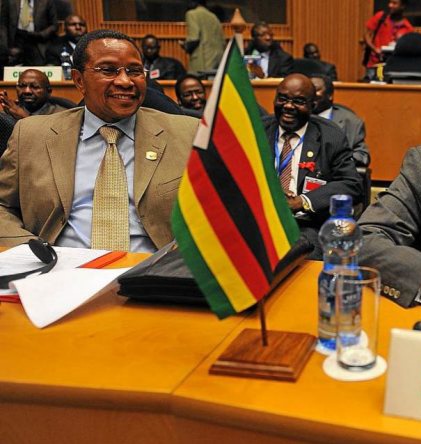There are many conversations I have had with many comrades about the importance of what we now know to be the Southern African Development Community (SADC). And most times these conversations have bordered on the dismissively ahistorical.
Wherein colleagues view SADC as this anti-democratic organisation in the region that is preventing new/ nascent opposition political parties from gaining state power after periodic elections. Except when those that they support are endorsed by the same.
At the moment in this penultimate week of November 2024, Zimbabwe is hosting an Extraordinary Summit of SADC. Officially to discuss mainly the dangerous situation in the east of member state Democratic Republic of the Congo (DRC) among assumed concerns about the recent Mozambique elections.
We are not privy to the discussions of the heads of state and government of SADC. But we will know when the final communiqué is issued as to what has been either resolved or what will be put into some sort of action. Though we know that previous decisions have been made by SADC to support some sort of military interventionism from the region via its Organ on Politics, Defence and Security which is generally referred to as the Troika. It authorized this in Cabo Delgado, Mozambique and in the Eastern DRC where its peacekeeping mission has been working in tandem with the United Nations (UN) one.
But back to my skeptical African colleague who derides SADC, I always talk back to them politely and try to explain that this regional organization is not the European Union (EU). Nor is SADC the Organization of American States (OAS). Neither is it the Association of South East Asian Nations (ASEAN).
It is also not like the Economic Community of West African States (ECOWAS). Or the Intergovernmental Authority on Development (IGAD) in East Africa.
Its dynamics, at the risk of sounding like a broken record, is in no way similar to the aforementioned regional blocs.
And this is not a public relations piece on its behalf.
It is more an explanation of the historical reality and importance of SADC as a regional bloc. Both politically and economically with solidarity being a key functional element to who we are within the formal bloc but also as a people from this much colonized and maligned Southern African region.
SADC is formed of the Frontline States (FLS) in the early 1970s. These states were initially Tanzania, Mozambique, Zambia and Angola until others which became free such as Zimbabwe joined.
The FLS had been established in order to accelerate the liberation of Southern African people from colonialism. And to support the then Organization of African Unity (OAU) liberation committee’s work in this Southern African region as it was led by the late General Hashim Mbita.
But it is necessary to re-emphasize a particular point about being a Southern African.
Even if those in South Africa (the country) think that they are more exceptional despite the fact that any conscious continental African knows that we helped them to become free.
As Southern Africans, without a doubt, we have a shared history. Both in pre-colonial, colonial and post-colonial epochs. And even now, in this disastrous neo-liberal populist age that we have to live in.
We had the fact of our own pre-colonial migration and emigration which has made this region as diverse as it can be. Whether ethnically or by way of societal interactions. We have had less wars than many other African regions barring the ones in the apartheid motivated ones in Mozambique or those that are in the DRC at the moment.
Even at the onset of economic colonialism we rose above the Native Labor Associations such as the one that regionally controlled our physical male bodies the Witwatersrand Native Labour Association (WINELA) and became our own liberators. Either by waging war or by long duree civic activism.
By the time the FLS became the Southern African Development Coordinating Community (SADCC) our history of solidarity and freedom was already solid in the 1980s. We knew we had to free Namibia and South Africa from colonialism and apartheid (Remember Robson Banda anyone?)
And we also knew that we had to free Mozambique, Angola and ourselves from the clutches of South African apartheid sponsored rebel wars.
By the time we became the Southern African Development Community (SADC) we had achieved peace. We had prevented invasions of many of our members, including Zimbabwe under the then global ideological aegis of ‘liberal interventionism’ as led by Tony Blair and George Bush (leaders of the United Kingdom and the United States respectively at that time).
As a Zimbabwean I generally do not mind derogatory conversations that make SADC seem like a ‘wrong’ idea. I understand where some cdes come from ideologically. And its fair enough. Their perceptions of how SADC endorses contemporary election results contrary to what is referred to as global best practices.
Wherein we all know that there is no longer such a proper organic term in what is evidently a multi-polar, conservative and increasingly nationalist system (electoral college anyone?)
But if you ask me proper, or if a fair debate has to go down to the wire, SADC is the most revolutionary regional organization on the African continent. Both by way of history and also by way of pursuing peace in an increasingly and newly contested global political economy between what we knew as the global east and the global west.
We suffer. We continue.
Takura Zhangazha writes here in his personal capacity.

Leave a Reply